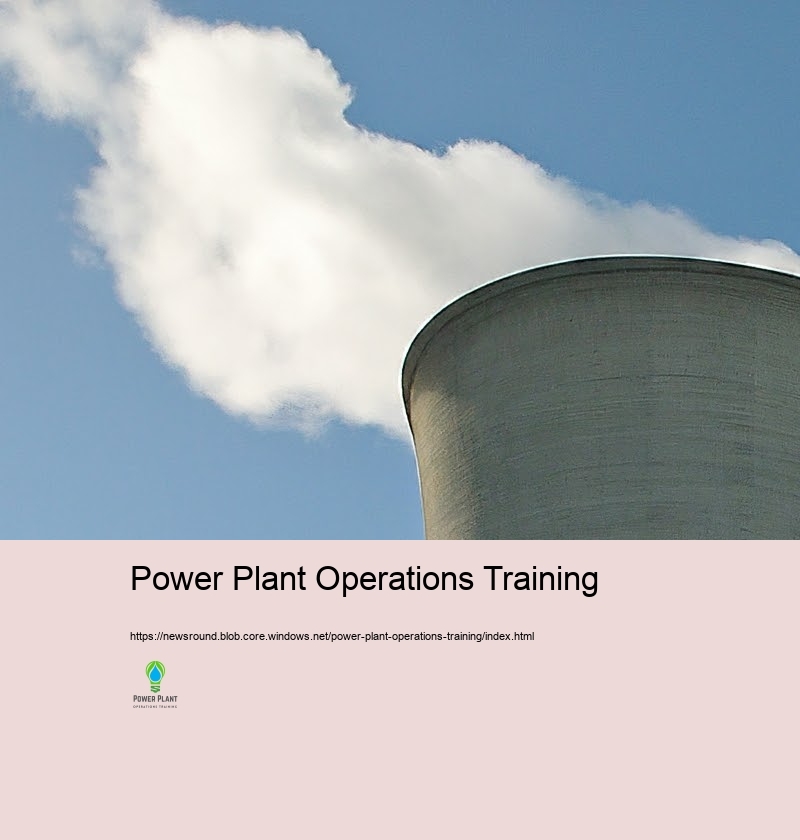Power Plant Operations Training
Emissions Monitoring
Nuclear power plant drivers play an essential obligation in ensuring the trustworthy and efficient making of electrical power. Their duties integrate a big range of jobs, from checking complicated systems to reacting to emergencies. This thorough training overview outlines the essential abilities that power plant drivers requirement to develop and maintain to master their duties. Among the essential capabilities for nuclear power plant operators is an extensive understanding of power generation concepts. This consists of experience of different type of nuclear reactor (e.g., coal, gas, nuclear, hydroelectric, and renewable resource resources) and their details functional attributes. Operators must comprehend the basic thermodynamic cycles, such as the Rankine cycle for hefty steam power plants or the Brayton cycle for gas generators. This basic knowledge enables operators to recognize the interconnectedness of various plant systems and make informed choices throughout operation. Technical performance is one more important ability for nuclear power plant drivers. They need to understand with the procedure, upkeep, and troubleshooting of a large choice of devices, including wind turbines, generators, central home heating central heating boilers, pumps, and electric systems. This needs a solid understanding of mechanical, electrical, and instrumentation ideas. Operators should have the ability to testimonial and translate technological illustrations, schematics, and operational handbooks. Hands-on experience with devices fixing and maintenance is indispensable, as it makes it possible for drivers to immediately recognize and address issues that could occur throughout plant operation. Proficiency in control space operations is vital for nuclear power plant operators. This consists of comprehending the use of computerized control systems, SCADA (Supervisory Control and Information Purchase) systems, and different monitoring devices. Operators has to have the capacity to analyze complex info display screen screens, pattern charts, and alarm systems to keep optimal plant efficiency. They must be experienced in making precise modifications to plant criteria, such as temperature degree, stress, and blood circulation prices, to assurance effective and secure operation. In addition, experience with dispersed control systems (DCS) and programmable thinking controllers (PLCs) is progressively essential in modern-day nuclear power plant. Safety and security recognition and emergency circumstance activity abilities are exceptionally crucial for power plant operators. They have to have a deep understanding of plant security techniques, consisting of lockout/tagout procedures, limited area entrance, and specific safety tools (PPE) use. Operators needs to be well-versed in emergency situation treatments and have the capacity to respond promptly and effectively to various scenarios, such as devices failings, fires, or chemical spills. Regular engagement in security drills and simulations assists enhance these vital capabilities. Trusted interaction is an essential capability for nuclear reactor drivers. They need to have the capability to plainly and concisely relay details to coworkers, supervisors, and outside stakeholders. Power Plant Operations Training This includes the capacity to produce comprehensive documents, keep precise logs, and supply clear spoken directions during shift modifications or emergency situations. Excellent communication abilities additionally include energised paying attention and the capability to function collaboratively in a group establishing. Analytical and analytic capabilities are critical for nuclear reactor vehicle drivers. They require to have the ability to promptly examine complex situations, identify source of worries, and use trustworthy solutions. This calls for the ability to believe seriously, make decisions under stress and anxiety, and focus on jobs effectively. Operators must be knowledgeable in fixing various systems and tools, generally using a mix of technical competence, experience, and logical thinking. Flexibility and consistent understanding are essential features for nuclear power plant drivers. The power market is frequently progressing, with brand-new technologies, standards, and functional methods being presented frequently. Operators needs to desire and able to adapt to these modifications, approving new finding opportunities and remaining existing with market crazes. This might include signing up with reoccuring training programs, participating in market conferences, or pursuing added certifications. Ecological recognizing is ending up being considerably important for power plant chauffeurs. They should certainly understand the ecological affects of power generation and recognize with emissions regulate contemporary technologies and policies. Operators play a vital role in making certain that the plant runs within environmental conformity standards and should be favorable in identifying opportunities for improving ecological performance. Stress and anxiety and anxiousness monitoring and the capacity to keep emphasis throughout long shifts are vital capabilities for nuclear power plant drivers. The work typically consists of comprehensive durations of monitoring systems, which require continuous focus to details. Operators needs to have the ability to stay sharp and make audio choices also throughout graveyard shift or in high-pressure circumstances. Developing approaches for looking after exhaustion and maintaining emotional skill is essential for lasting success in this obligation. Leadership and synergy abilities are essential for power plant drivers, particularly as they development in their professions. Senior motorists normally take on supervisory tasks, looking after teams and coordinating tasks throughout various plant areas. The capability to consultant junior team, delegate jobs effectively, and foster a positive workplace includes in total plant efficiency and security. Experience with governing conformity is an additional critical facet of a power plant operator skill set. They ought to have a mutual understanding of market guidelines, including those pertaining to safety and security and safety, environmental management, and functional demands. Operators should ensure that plant operations comply with these regulations and have the capacity to take part in conformity audits and assessments. Requirement computer abilities are increasingly vital for power plant motorists.
Power Plant Operations Training - Power Generation Technologies
- Mechanical Systems Maintenance
- Turbine Blade Inspection
- Electrical Systems Training
- Heat Recovery Systems
Power Plant Operations Training





